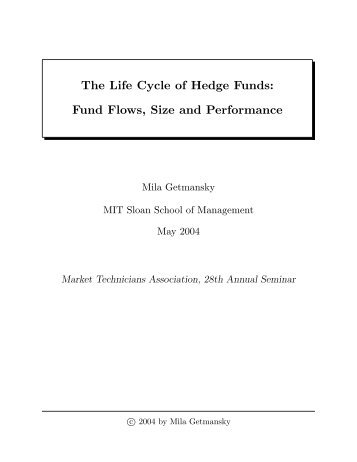

It is the management’s duty to estimate if their financial statements can be prepared on a growing concern basis or not. Going concern assumption allows an accountant to defer recognition of specific expenses to a later point in time since the entity will still be in business in the future. This is another major significance of going concern concept which allows assets to be used most effectively. Instead of using the current market value as the basis, financial accounts are generated at cost.
A contingent asset is usually disclosed in the report of the approving authority. All the items having significant economic effect on the business of the enterprise should be disclosed in the financial statements. The value of an asset is to be determined on the basis of historical cost/acquisition cost. In the financial statements of the organization if any revenue is recognized then expenses related to earn that revenue should also be recognized. Those transactions alone that are capable of being measured in terms of money only be recorded in the books of accounts.

To avoid this, you must be aware on what the terms really mean. The Auditor would not risk making a commitment that the entity is a “Going Concern “ except where it is crystal clear and is backed by enough financial backup to cover liabilities for over two years from the Balance Sheet date. Any judgment about the future is based on information available at the time at which the judgment is made. Subsequent events can contradict a judgment which was reasonable at the time it was made. Going Concern is a concept where the continuity of a business organisation is assessed.
Expert Assisted Services
Information about What is the relation betweeen historical cost concept and going concern concept? Find important definitions, questions, meanings, examples, exercises and tests below for What is the relation betweeen historical cost concept and going concern concept?. To take the same logic further; thus; if going concern assumption does not hold true then, there is no point in recording the assets and liabilities at historical cost. In such case, the accounting will shift on recording the net realizable value of these assets/liabilities. The valuation of assets of a business entity is dependent on this assumption. Traditionally, accountants follow historical costs in the majority of cases.
The financial statement must disclose all the relevant and reliable information in accordance with the full disclosure principle. In books of account building will be recorded at cost i.e. ₹10 lakh. We collect, retain, and use your contact information for legitimate business purposes only, to contact you and to provide you information & latest updates regarding our products & services. We do not sell or rent your contact information to third parties. Please note that by submitting the above mentioned details, you are authorizing us to Call/SMS you even though you may be registered under DND. The going concern theory allows the company to present a more accurate and fair view of its financials without any huge impact or distortions.
What is the objective of going concern?
The going concern principle assumes that any organization will continue to operate its business for the foreseeable future. The principle purports that every decision in a company is taken with the objective in mind of running the business rather than that of liquidating it.
The management’s competence and moral character continue to be the key components of a company. For a corporation to sustain itself and be profitable over the long term, good operational effectiveness and business foresight are essential. Recessions in the economy are also important because they determine managerial skills when significant companies cannot turn a profit. When a business has to be closed for any reason, then it is appropriate to show assets at the market values. Fixed assets of business are shown in Balance Sheet at their depreciated values and not at their market or realizable values, while current assets are shown at their realizable values in the Balance Sheet.
Why do you need to refer a Financial Dictionary?
Consistency refers to the regularity with which a business reports its financial reports. A consistent history of reports improves the reliability of the financial information provided by the company. If you want to invest in a financial product, you must understand various financial terms. Many financial intermediaries misguide you to make quick profits. You can avoid this by understanding financial terms and make smart investment decisions. If you are planning to avail a Home Loan, then it is crucial for you to understand under what conditions your bank is sanctioning the loan.

By understanding the going concern, consistency, and accrual assumptions, final users of financial statements can make more informed decisions based on the financial information provided. The going concern assumption is a fundamental principle in the preparation of financial statements. Accordingly, the assets and liabilities are recorded on the basis that the entity will be able to realize its assets and discharge its liabilities in the normal course of business. The accrual assumption is the idea that revenues and costs are recognized as they are earned or incurred, not when money is received or paid. Transactions are recognized as soon as they occur, whether or not cash or cash equivalent is actually received or paid. This basis ensures better matching between revenue and cost, and profit or loss is calculated based on accruals, reflecting the activities of the enterprise during an accounting period rather than just its cash flows.
More Types of securities Questions
Cash basis accounting is used more frequently by small businesses that deal only with cash transactions, such as retail stores or restaurants. Materiality is a concept in financial accounting and reporting that firms may disregard trivial matters, but they must disclose everything that is important to the report audience. Items that are important enough to matter are material items. American companies prepare their financial statement in Dollars whereas Japanese companies produce financial statement in Yen.
- If a company cannot continue operating, it will eventually go bankrupt, so accounting professionals need to be very careful.
- Here you can find the meaning of Is there is any exception to going concern concept?
- If the company is making money, then it is likely to continue doing so.
- ClearTax serves 1.5+ Million happy customers, 20000+ CAs & tax experts & 10000+ businesses across India.
- The only difference is that the end of a company is usually brought about voluntarily by its owners either through liquidation or through mergers or amalgamations.
We hope this article about some of the most crucial accounting concepts with examples has helped you to get deeper insights into the basic financial accounting concepts. Having a thorough knowledge of these concepts is mandatory for anyone who wants to succeed in business. Going concern is an accounting term that indicates the belief that an organisation will continue operating indefinitely. To determine the going concern status, an accountant can look at the company’s assets, liabilities, and net worth, among other factors. Going concern is one of the three accounting assumptions which are fundamental in preparation of books of accounts.
More Banking and Financial Awareness Questions
Hence the amount for which the partially completed jeans could be sold if the company were liquidated today is irrelevant. Under the going concern concept, there is no need to constantly measure an entity’s worth to potential define going concern concept buyers and it is not done. Instead, it is assumed that the resources currently available to the entity will be used in future operations. Information about Is there is any exception to going concern concept?
In such a scenario, the company’s assets would be evaluated at market value in the event of liquidation, making them different from the value established at cost. The Securities and Exchange Commission requires the auditor to note in public companies’ financial statements whether the company’s status as a continuing concern is in dispute. This can shield investors from persisting in staking their capital on a company that might not last for very long.
If it always chooses the same accounting options for its different lines of business and uses the same terminologies, it will have a better ability to analyze its results over time. Otherwise, it becomes difficult to compare various records over time. Cash basis accounting, on the other hand, only records income and expenses at the time they are paid or received. For example, if a business sells goods for ₹100, but it takes two weeks to get paid, the cash basis accounting would record the sale as taking place in the second week instead of recording it immediately. Concepts are basic assumption and condition upon which accountancy has been laid.The accounting concepts lay the foundation for formulation of accounting principles.
What would be the effects if a business does not follow the concept of going concern? Without going concern concept, businesses would not be able to perform accrued or prepaid expenses. The going concern concept allows a business to defer some of their prepaid expenses to future accounting periods, rather than recognizing them all at once. The going concern principle assumes that any organization will continue to operate its business for the foreseeable future. The principle purports that every decision in a company is taken with the objective in mind of running the business rather than that of liquidating it.
Conservatism is simply defined as providing realistic assumptions and estimates in your calculations. It requires an accounting entry that should match what is actually happening in reality. In short, this concept refers to the difference between the actual number and the reported number.For example, if a company reports ₹10 Crores in revenue but only receives ₹9 Crores, the discrepancy is ₹1 Crore. Conservatism requires that the reported numbers match the actual amounts.So, why is conservatism important? There are several reasons for it.Generally, internal information is usually biased toward the company’s viewpoint.
Because of this, expenditure is divided into Capital & Revenue Expenditure \& the Fixed Assets are valued at cost less Depreciation. There are six major scenarios that act as threats to a company’s going concern. The end of a company is usually brought about voluntarily by its owners either through liquidation or through mergers or amalgamations.
What is the going concern concept?
The going concern concept is a fundamental principle of accounting. It assumes that during and beyond the next fiscal period a company will complete its current plans, use its existing assets and continue to meet its financial obligations.
In this chapter, we’re going to get a little philosophical and get into a deep discussion with respect to the life of a company. Just like how every living being in this entire world ultimately faces an end to its life, a company is also capable of experiencing an end. The only difference is that the end of a company is usually brought about voluntarily by its owners either through liquidation or through mergers or amalgamations.
If a company cannot continue operating, it will eventually go bankrupt, so accounting professionals need to be very careful. For example, if a company does not generate enough sales to meet its expenses, it probably is not going to continue doing business for a long time. However, if it anticipates closing in the near future, it should not issue shares of stock to raise money for expansion. This is because the business would not be able to generate sufficient cash flow to cover its debt obligations, which could result in them being forced into bankruptcy. For instance, if the company consistently uses a cash basis accounting system, it must reconcile its balance sheet to its bank account on a daily basis.
What is the objective of going concern?
The going concern principle assumes that any organization will continue to operate its business for the foreseeable future. The principle purports that every decision in a company is taken with the objective in mind of running the business rather than that of liquidating it.
